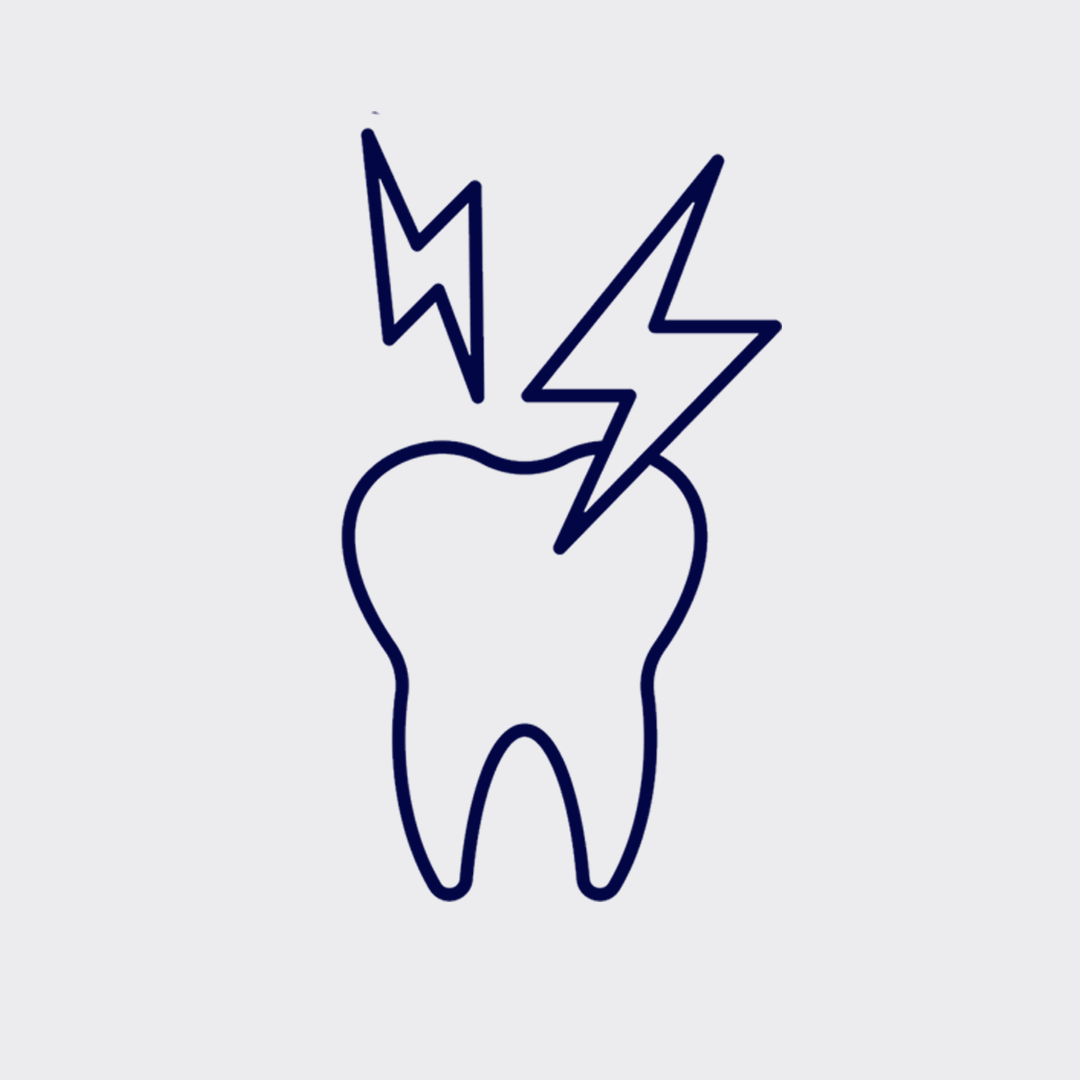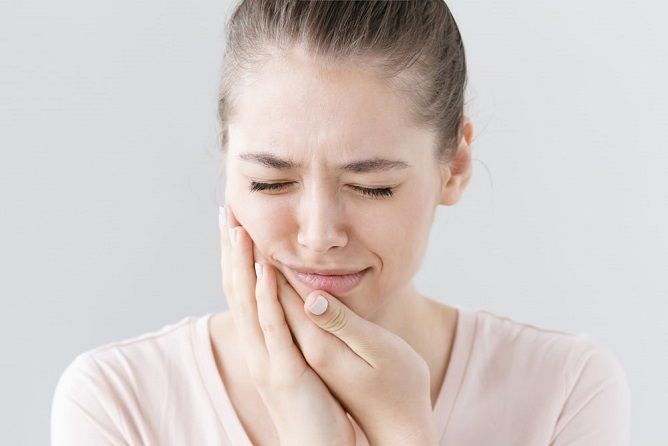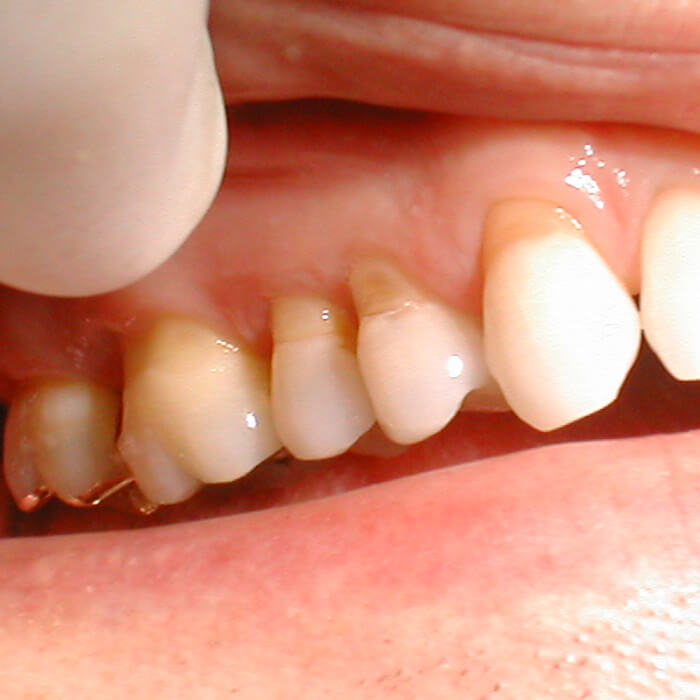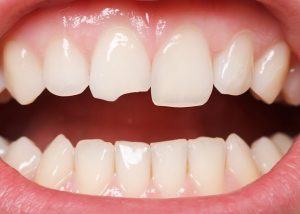
What causes tooth sensitivity? Treatment and prevention methods
تاریخ: ۲۳ آذر ۱۳۹۹ dr etemadifar
Have you ever felt pain or discomfort after a bite of ice cream or a spoonful of hot soup? If so, you’re not alone. While pain caused by hot or cold foods could be a sign of a cavity, it’s also common in people who have sensitive teeth.

Tooth sensitivity, or “dentin hypersensitivity,” is exactly what it sounds like: pain or discomfort in the teeth as a response to certain stimuli, such as hot or cold temperatures.
It may be temporary or a chronic problem, and it can affect one tooth, several teeth, or all the teeth in a single individual. It can have a number of different causes, but most cases of sensitive teeth are easily treated with a change in your oral hygiene regimen.
Symptoms of sensitive teeth
People with sensitive teeth may experience pain or discomfort as a response to certain triggers. You may feel this pain at the roots of the affected teeth. The most common triggers include:
• hot foods and beverages
• cold foods and beverages
• cold air
• sweet foods and beverages
• acidic foods and beverages
• cold water, especially during routine dental cleanings
• brushing or flossing teeth
• alcohol-based mouth rinses
Your symptoms may come and go over time for no obvious reason. They may range from mild to intense.
What causes sensitive teeth?
Some people naturally have more sensitive teeth than others due to having thinner enamel. The enamel is the outer layer of the tooth that protects it. In many cases, the tooth’s enamel can be worn down from:
• brushing your teeth too hard
• using a hard toothbrush
• grinding your teeth at night
• regularly eating or drinking acidic foods and beverages
Sometimes, other conditions can lead to tooth sensitivity. Gastroesophageal reflux (GERD), for example, can cause acid to come up from the stomach and esophagus, and may wear down teeth over time. Conditions that cause frequent vomiting — including gastroparesis and bulimia — can also cause acid to wear down the enamel.
Gum recession can leave sections of the tooth exposed and unprotected, also causing sensitivity.

Tooth decay, broken teeth, chipped teeth, and worn-down fillings or crowns can leave the dentin of the tooth exposed, causing sensitivity. If this is the case, you’ll likely only feel sensitivity in one particular tooth or region in the mouth instead of the majority of teeth.

ممکن است دندانهای شما به دنبال انجام درمانهای دندانپزشکی مانند پر کردن دندان ، روکش یا Teeth whitening، به طور موقت حساس شوند . در این حالت ، حساسیت به یک دندان یا دندانهای اطراف آن دندان که درمان دندان پزشکی برایش صورت گرفته، محدود می شود. این احساس باید بعد از چند روز فروکش کند.
How are sensitive teeth diagnosed?
If you’re experiencing tooth sensitivity for the first time, make an appointment with your dentist. They can look at the health of your teeth and check for potential problems like cavities, loose fillings, or recessed gums that could be causing the sensitivity.
How is tooth sensitivity treated?
If your tooth sensitivity is mild, you can try over-the-counter dental treatments.
Choose toothpaste that’s labeled as being specifically made for sensitive teeth. These toothpastes won’t have any irritating ingredients, and may have desensitizing ingredients that help block the discomfort from traveling to the nerve of the tooth.
When it comes to mouthwash, choose an alcohol-free mouth rinse, as it will be less irritating to sensitive teeth.
Using softer toothbrushes and brushing more gently can also help. Soft toothbrushes will be labeled as such.
If home treatments don’t work, you can talk to your dentist about prescription toothpaste and mouthwash. They may also apply fluoride gel or prescription-grade desensitizing agents in-office. These can help to strengthen the enamel and protect your teeth.
درمان و پیشگیری از شرایطی که باعث حساسیت دندان می شوند:
If underlying conditions are causing your tooth sensitivity, you’ll want to treat it before it causes the enamel to wear down and damage the teeth.
GERD can be treated with acid reducers, and bulimia should be treated under a supervising psychiatrist.
Receding gums can be treated by brushing more gently and maintaining good oral hygiene. In cases of intense sensitivity and discomfort due to severe gum recession, your dentist may recommend using a gum graft. This procedure involves taking tissue from the palate and placing it over the root to protect the tooth.
You can train yourself to stop clenching or grinding your teeth by being mindful not to do so during the day. Reducing stress and caffeine before bed can also help prevent you from grinding your teeth at night. If this doesn’t work, you can use a mouthguard at night to prevent the grinding from damaging your teeth.
What’s the outlook for tooth sensitivity?
If your tooth sensitivity is making it difficult to eat, talk to your dentist about finding a solution. There are many toothpastes and mouthwashes designed for sensitive teeth available over the counter.
If these aren’t effective, talk to your dentist about prescription toothpaste and mouthwash. You should also make an appointment with your dentist if you experience symptoms of cavities or potential root damage so you can get treatment quickly and prevent complications. These symptoms may include:
These symptoms may include the following:
• spontaneous tooth pain that occurs without an obvious cause
• tooth sensitivity localized to one tooth
• sharper pain instead of milder pain
• staining on the surface of your teeth
• pain when biting down or chewing
• pain when biting down or chewing
Avoid acidic foods and drinks.Soda, sticky candy, high-sugar carbs — all of these treats attack enamel. Instead, snack on:
• Fiber-rich fruits and vegetables
• Cheese
• Milk
• Plain yogurt

Change your toothbrush every two or three months, or when its hair is worn out.

